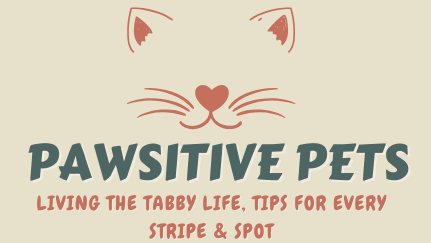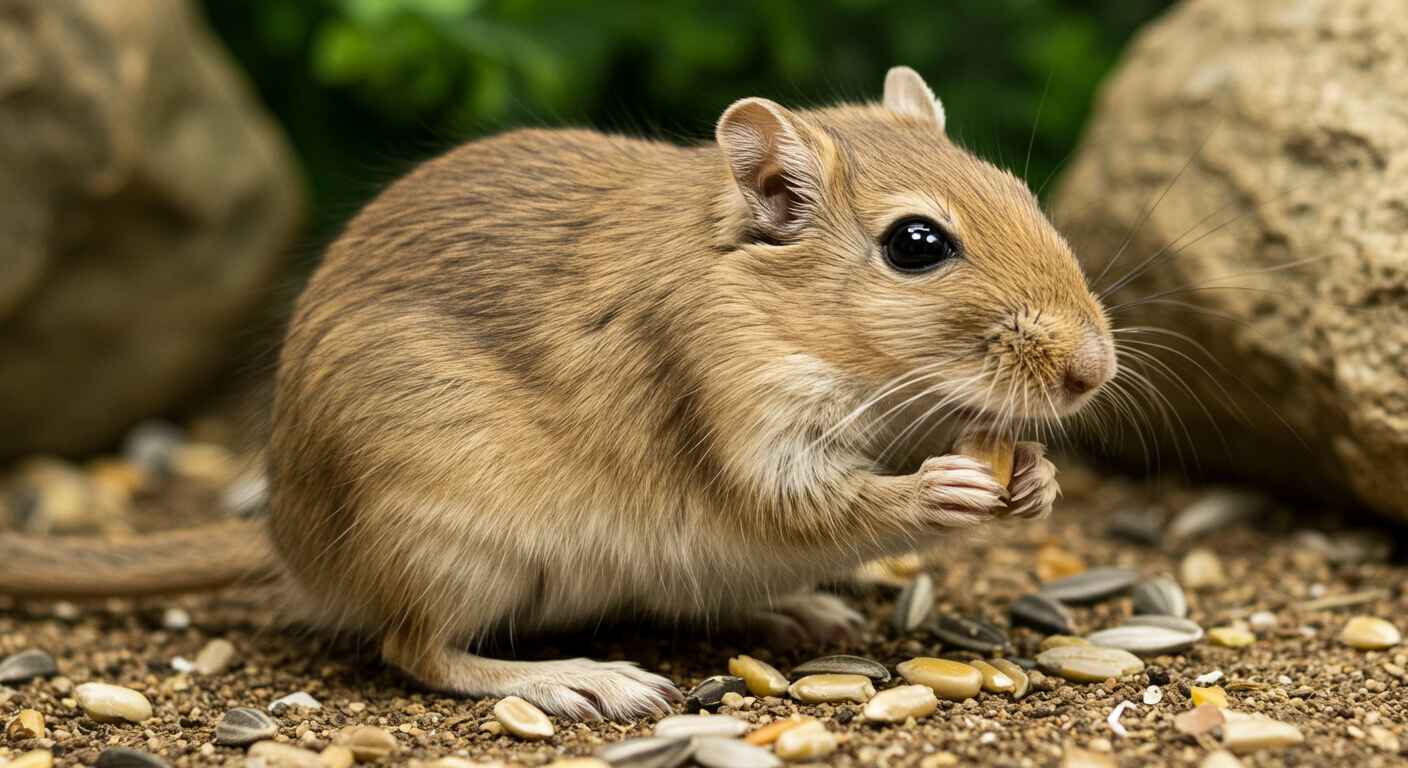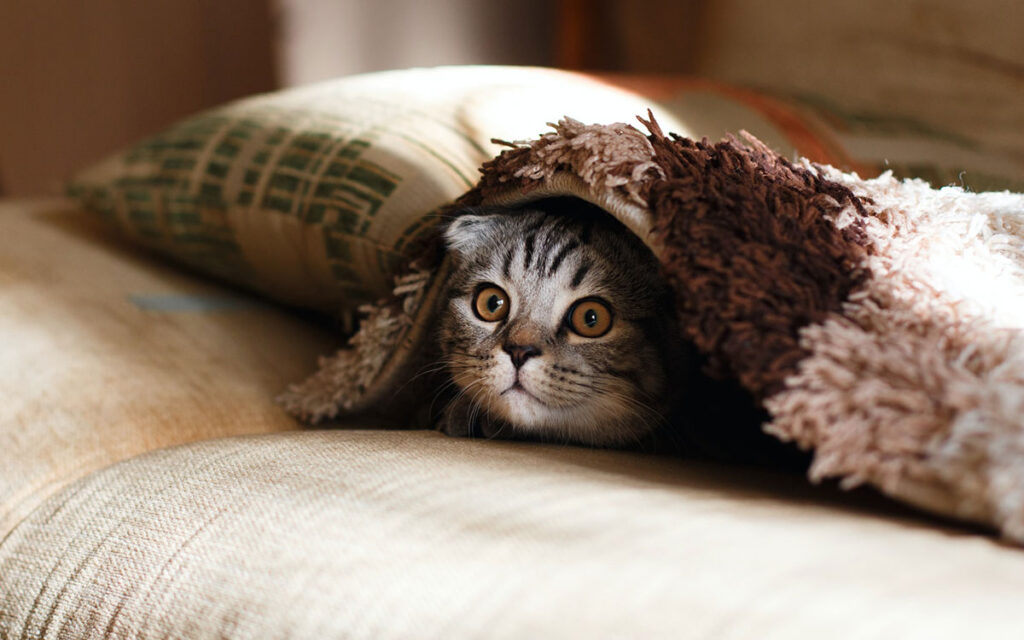What do gerbils eat? It’s one of the first questions any small pet owner should ask, and one I found myself asking years ago as I watched my niece bring home her first gerbil, wide-eyed with excitement but unsure what came next. Growing up in a home where pets weren’t just animal, they were family, understanding what do gerbils eat felt like the natural next step in our household’s legacy of care.
From Mimi, my grandmother’s sassy white cat, to our twin guinea pigs, Peanut and Butter, our house was a zoo of joy. Sundays were filled with fur, feathers, and food bowls. It wasn’t chaos, it was connection. That same love inspired this website: a cozy corner for pet parents to find honest, researched answers.
In this guide, I’ll walk you through everything from safe fresh foods and treats to feeding schedules and what to avoid. Whether you’re brand-new to gerbils or just brushing up on their care, you will find answers written with heart, and backed by experience.
Table of Contents
Understanding a Gerbil’s Natural Diet in the Wild
What Do Gerbils Eat in Their Natural Habitat?
What do gerbils eat when they aren’t living in cozy cages? In the wild, gerbils roam dry regions like Mongolia’s steppes and semi-desert areas where food is limited but varied. The foundation of their diet includes seeds, dry grasses, grains, roots, and occasionally insects. It may not sound like much, but it’s perfectly suited to their unique digestive systems.
Knowing what gerbils eat in their natural habitat helps you understand their needs at home. They’re built to thrive on low-fat, high-fiber foods, and their bodies don’t handle rich or fatty meals well. This background is key to creating a healthy, safe meal plan for your pet.
Wild gerbils forage throughout the day, nibbling on what they can find, think dry leaves, stems, husks, and even the occasional bug. While variety is essential, so is moderation. Because they originate from places where food is scarce, gerbils are excellent at using every bite efficiently.
If you’ve been wondering what do gerbils eat to stay energized and healthy in their natural environment, the answer is simple: tough plants, roughage, and the occasional protein snack. That’s their survival fuel, and it’s what their bodies still crave, even in captivity.
How Gerbil Diets Differ from Other Rodents
Now that you know what do gerbils eat in the wild, let’s look at how their diet differs from other small pets. Many people mistakenly feed gerbils like hamsters, but gerbils have distinct nutritional needs. For example, they don’t need vitamin C like guinea pigs do. They also process fats differently than hamsters and mice.
Here’s a comparison to make things clearer:
| Pet Type | Key Diet Components | Special Needs |
|---|---|---|
| Gerbil | Seeds, grains, low-fat veggies | Low-fat, high-fiber diet |
| Hamster | Seeds, grains, occasional proteins | Can tolerate more fats |
| Guinea Pig | Vegetables, hay, vitamin C | Must have external vitamin C |
| Mouse | Grains, protein-rich supplements | More protein than gerbils |
The Basics of a Balanced Gerbil Diet at Home
Commercial Gerbil Food: Pellets, Mixes, and Formulas
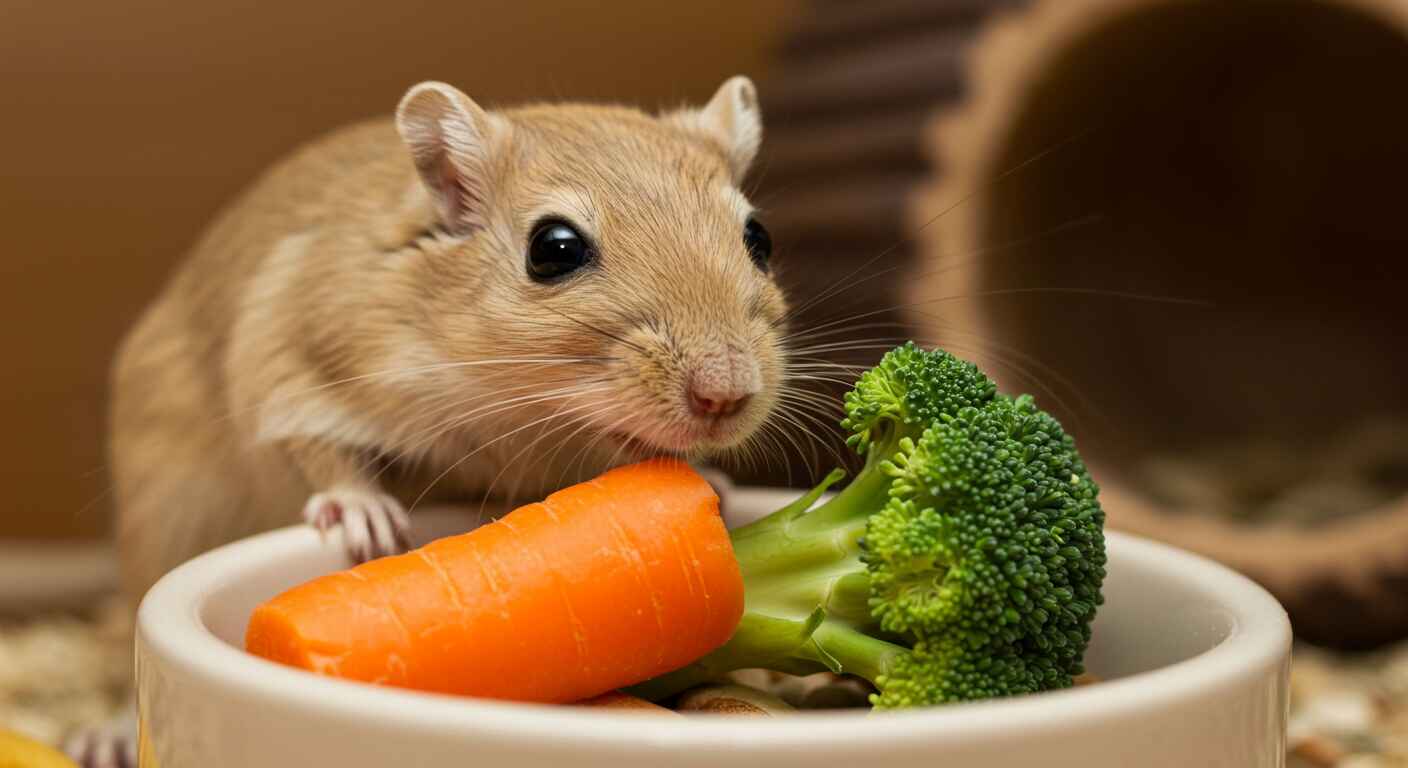
When it comes to what do gerbils eat at home, the foundation should always be a high-quality, store-bought food mix or pellet. These are specially formulated to meet a gerbil’s daily nutritional needs. You’ll find two main types on the market:
- Pellets: These uniform nuggets ensure every bite contains the right balance of nutrients. Great for picky eaters who otherwise might pick out only the tastiest pieces from a mix.
- Seed Mixes: A blend of seeds, grains, and dried veggies that mimic natural foraging. They offer variety but may lead to selective feeding if your gerbil only eats the fatty seeds.
Look for commercial foods that include:
- Whole grains like millet, oats, or barley
- Dried vegetables like carrots or peas
- Protein sources such as mealworms or soy
- Added vitamins and minerals
Avoid any mix with added sugars, artificial colors, or fatty seeds like sunflower seeds as the main ingredient. These can lead to obesity and other health problems. If you’re wondering what do gerbils eat that’s closest to their natural intake, go for a plain, balanced seed mix with minimal processing.
Check out what foods the experts at Burgess Pet Care recommend for feeding gerbils
What Nutrients Gerbils Need Daily
Gerbils may be small, but their nutritional needs are complex. A healthy gerbil diet should include:
| Nutrient | Purpose in Diet | Recommended Source |
|---|---|---|
| Carbohydrates | Provide energy for activity | Grains, oats, barley |
| Protein | Supports muscle, fur, and growth | Dried mealworms, soy, seeds |
| Fiber | Aids digestion and prevents obesity | Dried grasses, vegetables |
| Fat | Supports energy in moderation | Pumpkin seeds, flax |
| Vitamins & Minerals | Bone health, immunity, metabolism | Fortified pellets, fresh food |
PART 3: Fresh Foods Gerbils Can Eat Safely
Safe Vegetables for Gerbils
You already know what do gerbils eat in the wild, but adding fresh veggies to their diet brings valuable nutrients and variety. Fresh vegetables offer hydration, fiber, and essential vitamins when fed in moderation. That said, not every veggie is safe.
Here’s a list of safe vegetables for gerbils:
- Carrots (raw or slightly steamed)
- Broccoli (chopped finely)
- Cucumber (peeled to avoid wax coating)
- Bell peppers (no seeds)
- Zucchini
- Cauliflower (small portions)
- Spinach (occasional only due to calcium)
- Romaine lettuce (never iceberg, it causes diarrhea)
Always wash vegetables thoroughly and chop them into small pieces. Feed no more than a thumbnail-sized portion once or twice a week to avoid diarrhea or bloating. And never leave uneaten fresh food in the cage, it can rot quickly.
If you’re still wondering what do gerbils eat for hydration or variety, these vegetables are a safe place to start. Just remember: their stomachs are small and delicate, so less is more.
Healthy Fruits Gerbils Can Enjoy in Moderation
Gerbils can eat some fruits, but sugar content makes moderation essential. In nature, fruits aren’t part of what gerbils eatregularly, so they should be occasional treats only.
Safe fruits for gerbils include:
- Apple (without seeds or core)
- Banana (tiny slice only)
- Blueberries (rich in antioxidants)
- Grapes (seedless and cut)
- Pear (peeled)
- Strawberry (washed thoroughly)
Feed fruits no more than once a week, and only as a tiny bite-sized portion. Too much sugar can lead to obesity, tooth issues, or even diabetes in older gerbils.
| Fruit Type | Portion Suggestion | Notes |
|---|---|---|
| Apple | 1 small cube | Remove seeds (toxic) |
| Banana | Half a coin-sized slice | High sugar, feed sparingly |
| Blueberry | 1 berry | Great antioxidant, low sugar |
| Grape | 1 small half | Must be seedless |
PART 4: Foods Gerbils Should Avoid Completely
Toxic and Dangerous Foods for Gerbils
When figuring out what do gerbils eat, it’s just as important to know what they absolutely shouldn’t. Gerbils have sensitive digestive systems, and even a small bite of the wrong thing can lead to illness, or worse. Here’s a list of foods that are dangerous or toxic to gerbils:
- Chocolate – contains theobromine, toxic to gerbils
- Onions and garlic – can damage red blood cells
- Citrus fruits (like oranges or lemons) – too acidic
- Rhubarb – high in oxalic acid, very toxic
- Avocado – contains persin, harmful to small animals
- Raw beans or lentils – can be toxic unless cooked
- Alcohol or caffeine – even a trace can be fatal
- Sugary or salty snacks – cause liver and kidney strain
Avoid feeding your gerbil anything flavored, fried, or processed. Even foods that seem healthy to humans can be harmful to small pets.
If you’re ever unsure what do gerbils eat safely, it’s better to check a trusted vet-approved list or skip it entirely.
Learn more about harmful foods and rodent-safe diets from the RSPCA
Common Human Foods That Are Harmful
Many pet owners unknowingly feed gerbils table scraps or “just a taste” of a snack, but it’s rarely a good idea. Common human foods to never give gerbils include:
- Bread or pasta (too starchy and sticky)
- Cheese (too fatty and hard to digest)
- Ice cream or yogurt (contains lactose and sugar)
- French fries, chips, or crackers (loaded with salt and oil)
- Meat or deli slices (high in fat, preservatives, and sodium)
Gerbils aren’t built to handle these foods. Their tiny organs can’t process the same things humans eat. When someone asks what do gerbils eat and jokes about “just a bite of my sandwich,” it’s better to play it safe and stick to proper gerbil food.
The takeaway? If it’s not naturally found in the wild or formulated for gerbils, it likely doesn’t belong in their bowl.
PART 5: Treats for Gerbils: What’s Okay and What’s Too Much
Natural and Store-Bought Treat Options
Gerbils love treats, and let’s be honest, it’s fun to spoil them a little. But treats should never replace their main diet. When asking what do gerbils eat besides their daily food mix, the key is moderation and safety.
Natural treat ideas for gerbils include:
- Unsweetened shredded wheat (1 piece max)
- Tiny piece of whole grain toast (no butter or toppings)
- Pumpkin seeds (plain and raw)
- Dried herbs like parsley or dandelion
- Oat flakes or barley puffs (unsweetened)
If you’ve been wondering what do gerbils eat to stay healthy and still enjoy flavor, these simple items are great low-risk options.
Store-bought options are available too, but choose carefully. Look for:
- Sugar-free, preservative-free treats labeled for gerbils or small rodents
- Baked snack sticks made from seeds and whole grains
- Dried veggies or fruit cubes (no added sugar or sulfur)
Just because a treat is sold in a pet store doesn’t mean it’s healthy. Always read the label. Avoid anything with molasses, honey glaze, corn syrup, food dye, or artificial flavoring.
How Often Should You Give Gerbil Treats?
The best rule to follow? Treats should make up no more than 5-10% of your gerbil’s total weekly diet.
A small treat 2-3 times a week is enough. Overfeeding treats, especially sugary or fatty ones, can lead to obesity, digestive issues, and even behavioral changes (like food hoarding or aggression).
Here’s a simple guide to treat frequency:
| Treat Type | How Often | Portion Size |
|---|---|---|
| Pumpkin seed | 1-2x per week | 1-2 seeds |
| Oat flake | 2x per week | 1 flake |
| Apple cube | 1x per week | 1 thumbnail-size piece |
| Pet store chew stick | 1x every 10 days | Break into halves |
PART 6: Water Needs and Hydration for Gerbils
Best Way to Provide Water for Gerbils
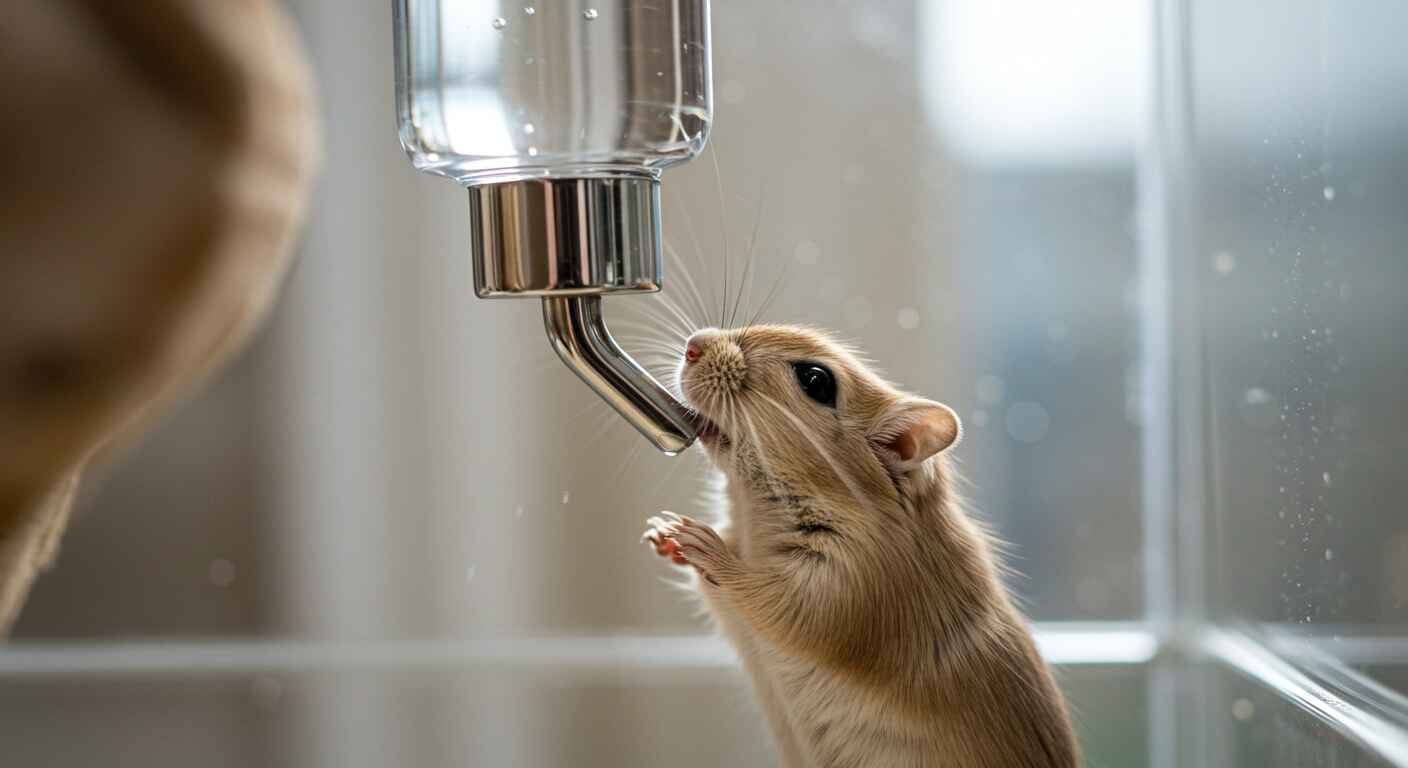
Just like food, water is essential to a gerbil’s health, but it’s often overlooked. While we focus a lot on what do gerbils eat, hydration is equally important for keeping your pet energetic and healthy.
Gerbils don’t need large amounts of water, especially since they evolved in dry environments, but they must have constant access to fresh, clean water. The best method? A water bottle with a metal spout attached to the cage. Bowls can spill or get filled with bedding, which quickly contaminates the water.
Change the water daily, and clean the bottle every few days to prevent algae or bacteria buildup. If you live in an area with hard tap water, consider using filtered water to protect their kidneys and urinary health.
Learn more about 10 Pet Care Tips Every Beginner Should Know
Signs of Dehydration and What to Do
When evaluating overall health, hydration plays a big role. Even if you’re feeding the best foods based on what do gerbils eat, dehydration can undo a lot of the benefits of a balanced diet.
Here are signs your gerbil may be dehydrated:
- Sunken eyes
- Lethargy or less movement than usual
- Skin doesn’t bounce back when gently pinched
- Dry nose or mouth
- Loss of appetite
If your gerbil shows any of these symptoms, act fast. Offer water with a syringe (without the needle) and consult a small animal vet immediately.
Also, keep in mind that what do gerbils eat can affect hydration. Foods with high salt content or dry seed-heavy mixes can make them thirstier. Including small pieces of fresh vegetables, like cucumber or zucchini, a couple of times a week, can help hydrate naturally, just be sure not to overdo it.
Here’s a simple table to help you monitor hydration:
| Factor | Healthy Indicator | Warning Sign |
|---|---|---|
| Water intake | Steady bottle levels | No change or sudden drop |
| Behavior | Active and alert | Sluggish or sleepy |
| Skin elasticity | Bounces back instantly | Remains pinched |
| Nose and mouth | Moist and clean | Dry or crusty |
PART 7: Feeding Schedules and Portion Sizes for Gerbils
How Often to Feed Your Gerbil
You’ve learned what do gerbils eat, but when and how much you feed matters just as much. Gerbils do best on a consistent feeding schedule, which supports their natural foraging instincts and prevents overeating.
The general rule?
Feed adult gerbils once per day, around the same time. Use a small, shallow dish or sprinkle the food directly into their bedding to encourage natural foraging behavior.
Gerbils are most active during early morning and evening, so feeding during those windows aligns with their natural rhythms. If you’re still wondering what do gerbils eat at different times, the answer stays consistent: balanced pellets or mix, and an occasional treat every few days.
A good schedule also prevents food hoarding, which can lead to spoilage and waste in the cage.
Check out feeding techniques and daily routines from the RSPCA
Understanding Portion Control and Preventing Overfeeding
Portion control is a huge part of healthy gerbil care. Even if you know what do gerbils eat, giving too much food too often can cause weight gain, digestive issues, and dental problems from not gnawing enough.
Here’s a guideline to follow:
| Gerbil Age | Portion Size | Feeding Frequency |
|---|---|---|
| Adult (6+ weeks) | 1-2 tablespoons daily | Once per day |
| Young (3-6 weeks) | 1 tablespoon twice daily | Until fully grown |
| Senior (2+ years) | Slightly reduced portions | Monitor closely |
PART 8: Special Diet Tips for Baby, Pregnant, or Senior Gerbils
Feeding Young Gerbils: What to Know
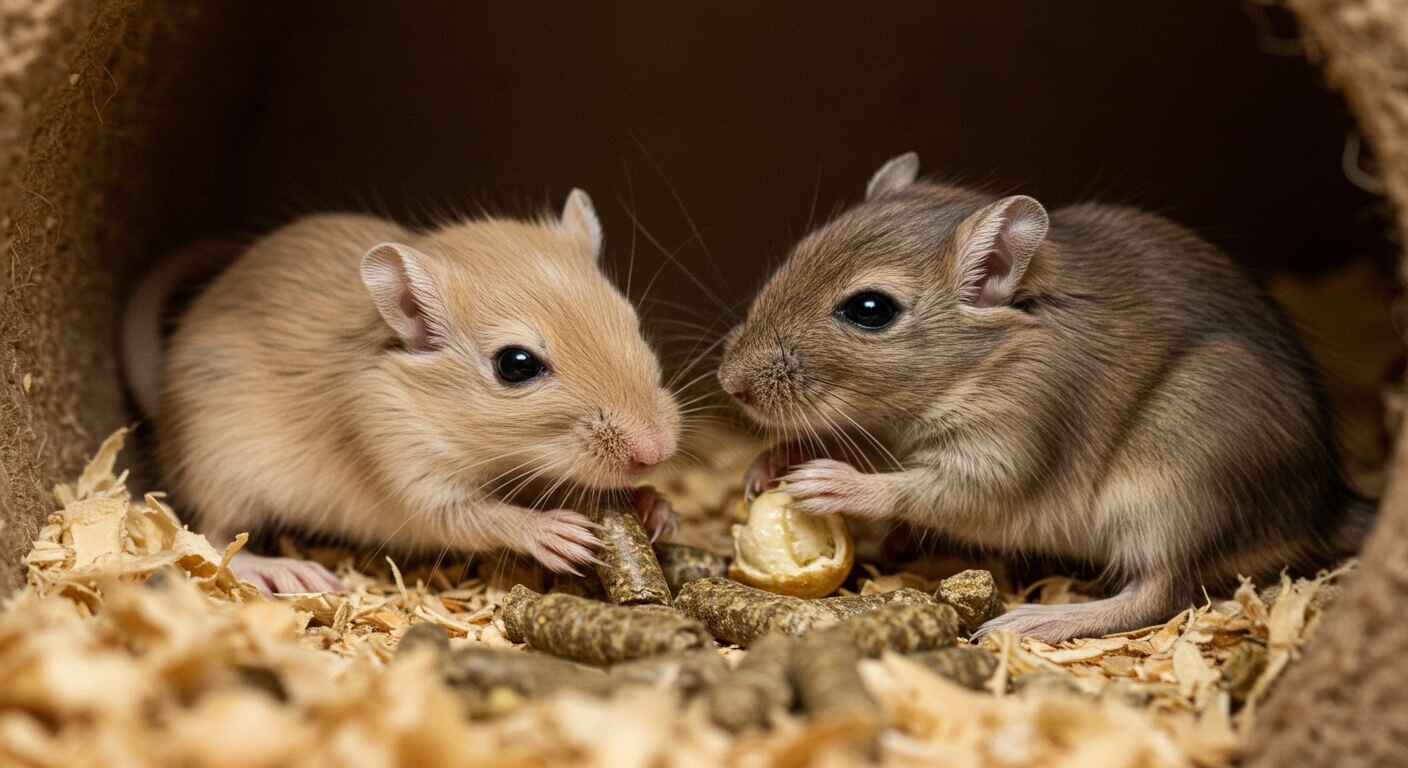
Baby gerbils have specific dietary needs during their growth stages. While adult gerbils thrive on a well-balanced mix, younger ones require higher protein and fat to support development. So, if you’re wondering what do gerbils eatwhen they’re still small, it’s not quite the same as their adult counterparts.
From 3-6 weeks old, young gerbils can begin nibbling solid food while still nursing. At this stage, offer:
- High-quality pellet or mix with 16-18% protein
- Crushed oats or soft, soaked pellets to ease chewing
- Small pieces of steamed veggies (carrot, zucchini)
Be cautious not to overfeed soft or fresh food too early, as it can upset their delicate digestive system. Introduce variety slowly and track stool quality. Understanding what do gerbils eat as they wean helps prevent deficiencies and builds strong immunity.
As they reach 6 weeks, their diet should resemble that of adults, but still with a slightly higher protein content until full maturity.
Adjusting Diets for Aging or Expecting Gerbils
Pregnant and senior gerbils also need dietary tweaks. If you’ve raised the question, what do gerbils eat when they’re older or carrying babies, the answer lies in boosting quality, not quantity.
Pregnant or nursing gerbils need:
- More protein (17-20%)
- Added calcium (from dark leafy greens like kale, in small amounts)
- Extra hydration (with water-rich veggies like cucumber)
Senior gerbils (typically over 2 years) often deal with slower metabolism, worn teeth, or reduced appetite. Their food should be:
- Softer (you can soak pellets slightly)
- Lower in fat
- Rich in fiber to prevent constipation
Monitor their weight weekly and adjust portions based on activity and appetite.
Here’s a helpful reference chart:
| Life Stage | Diet Focus | Key Adjustments |
|---|---|---|
| Baby (3-6 weeks) | Growth support | Softened pellets, extra protein |
| Pregnant/Nursing | Reproduction support | More protein, calcium, hydration |
| Senior (2+ years) | Maintenance & digestion | Soft texture, low fat, high fiber |
PART 9: Monitoring Health Through Diet
Diet-Linked Behavior and Health Clues
Sometimes, the answer to what do gerbils eat can show up in how they behave. If your gerbil’s energy levels are dropping, or they’re chewing excessively on cage bars or ignoring their food, it might be more than mood, it could be diet-related.
Pay attention to these behavior-based signs:
- Sudden weight loss or gain
- Loose or very dry stool
- Refusal to eat specific parts of their mix
- Over-chewing plastic, wood, or bedding
- Aggressive behavior around food dishes
These may signal that your gerbil isn’t getting enough fiber, protein, or nutrients, or is reacting to something harmful in their diet. Reviewing what do gerbils eat daily can help you adjust their meals and get ahead of potential health issues.
Also, note coat condition: a dull or greasy coat often points to a fat-heavy diet or lack of variety. Healthy gerbils have smooth, clean fur and bright eyes.
Discover great ideas like how proper diet impacts behavior at Burgess Pet Care
When to Consult a Vet About Food Issues
If changing food or adjusting portion sizes doesn’t improve your gerbil’s health, it’s time to bring in a vet. Even if you’re sure about what do gerbils eat, nutritional deficiencies or underlying health problems can cause:
- Dental overgrowth (from lack of roughage or gnawing)
- Malnutrition (due to selective eating of only fatty seeds)
- Digestive issues (from sugar-heavy or moist foods)
A vet can help confirm if the problem lies in diet, hydration, or something else entirely. Bring a sample of their daily food and a list of recent changes to help with diagnosis.
Remember: part of understanding what do gerbils eat involves noticing when something feels off. Early signs often appear in food habits, don’t ignore them.
Frequently Asked Questions About What Do Gerbils Eat
Can gerbils eat cheese?
Cheese isn’t toxic to gerbils, but it’s not recommended as part of their regular diet. Gerbils are lactose intolerant, and cheese is too high in fat and salt. If you’re researching what do gerbils eat, keep dairy off the list. Stick to low-fat plant-based treats instead.
How much food does a gerbil need per day?
An adult gerbil typically needs 1 to 2 tablespoons of food daily. This includes a balanced mix of grains, seeds, and pellets. Overfeeding leads to hoarding and waste. Portion control is a key part of managing what do gerbils eat to keep them healthy and active.
Are sunflower seeds good for gerbils?
Sunflower seeds are fine in very small quantities as treats. While they are a source of fat and protein, they’re calorie-dense and can lead to weight gain. When planning what do gerbils eat, sunflower seeds should never be the main part of their diet.
Can gerbils eat lettuce?
Yes, but with caution. Romaine lettuce is okay in small amounts once a week, but avoid iceberg lettuce, it’s mostly water and can cause diarrhea. If you’re thinking about what do gerbils eat in terms of fresh greens, opt for kale or spinach instead (in moderation).
What fruits are safe for gerbils?
Safe fruits for gerbils include apples (no seeds), bananas, blueberries, and grapes. These should be given as occasional treats due to their sugar content. Understanding what do gerbils eat as safe fruits helps you avoid overfeeding and health issues.
Do gerbils need vitamins or supplements?
Not usually. If your gerbil is eating a complete commercial food mix with the right nutrients, extra supplements aren’t needed. But in some cases, like pregnancy, illness, or aging, your vet might recommend a vitamin boost. It’s always better to get most nutrients from what do gerbils eat naturally.
Conclusion
So, what do gerbils eat to live long, healthy lives? A well-balanced diet of commercial pellets or seed mixes, occasional fresh veggies, tiny fruit treats, and constant access to clean water is key. As you’ve learned, different life stages, from baby to senior, require subtle shifts in food, nutrients, and frequency. And just as important as knowing what do gerbils eat, is knowing what they should never eat.
By paying attention to their habits, portion sizes, and reactions to food, you’ll help your gerbil thrive. Whether you’re a first-time owner or a seasoned small pet parent, always aim to feed with intentionnot just love.
